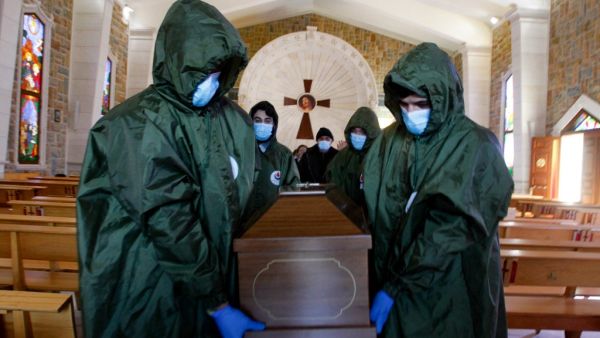Lebanon will launch its COVID-19 inoculation campaign on Sunday, a day after the first Pfizer jabs are set to arrive in the country, the media office of caretaker Prime Minister Hassan Diab said Tuesday.
The statement came after a meeting between Diab and caretaker Health Minister Hamad Hasan at the Grand Serail.
Health officials in #Lebanon are urging citizens to register for the #COVID19 vaccine after only receiving 230,000 requests so far, according to an adviser to the Minister of Health Ridha Moussawi.https://t.co/hsuQU1Xzug
— Al Arabiya English (@AlArabiya_Eng) February 9, 2021
Type 2 diabetics are higher on the COVID-19 vaccine priority list than those with Type 1 diabetes. https://t.co/Rdzr6OBTFg
— Lebanon Daily News (@LDNews) February 9, 2021
The first shipment of the Pfizer-BioNTech is expected to be 28,080 jabs from a total of 2.1 million doses reserved by the Lebanese government with similar weekly shipments into late March.
The Health Ministry has said it would be receiving a total of 249,000 jabs by the end of March with a further 350,000 vaccines in the second quarter and 800,000 in the third quarter.
This article has been adapted from its original source.








